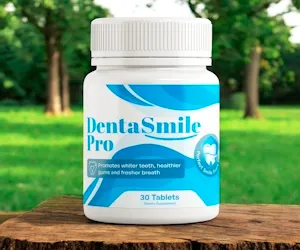There’s more to having white teeth and fresh breath than just how you look. It’s also about your health, your confidence, and your ability to get along with other people. In both personal and business situations, it’s important to have good breath and a bright smile. Happily, you can do both with a few simple changes to your daily habits, your lifestyle, and the choices you make.
1. Brushing Techniques For Whiter Teeth
It’s important to brush your teeth at least twice a day, but how you brush is just as important. Use a toothbrush with soft bristles and fluoride toothpaste. If possible, choose a toothpaste with cleansing ingredients that dental groups have approved. Brush your teeth for at least two minutes, making sure to clean every part of them. Scrubbing back and forth can wear down enamel over time, but gentle circle motions are better at getting rid of plaque. Using an electric toothbrush can make cleaning even better.
2. Flossing For Clean Gums And Fresh Breath
People often forget to floss, but it’s important to do so because your toothbrush can’t get to the food and gunk is stuck between your teeth. This growth can cause gum disease and bad breath if it is not removed. That way, your mouth will stay clean while you sleep. Floss every day, ideally before bed.
3. Tongue Cleaning
Bacteria that cause bad breath can live on your tongue. This bacteria can be removed by scraping your tongue or brushing it with your toothbrush. This simple step can make a big change in how your breath smells in less than a minute.
Professional Dental Care
1. Regular Dental Check-ups
It is very important to see your doctor every six months. Professional cleanings get rid of tartar buildup that you can’t get rid of by brushing your teeth. Also, your dentist can find early signs of cavities, gum disease, and other problems with your oral health before they get worse. This preventative method will not only keep your smile healthy, but it may also keep you from having to pay for more important and expensive treatments in the future.
2. Professional Whitening Treatments
If you want a big difference in how white your teeth look, you should get skilled treatments. Whitening done in the dentist’s office uses stronger bleaching agents and can show effects after just one session. Your dentist can give you at-home kits that work better over time, but they work more slowly and are safer than many over-the-counter choices.
Dietary Habits For Oral Health
1. Foods That Stain Teeth To Avoid
Some drinks and foods are known for colouring teeth. Coffee, tea, red wine, cola, and dark berries can change the colour of enamel over time. Citrus fruits and other acidic foods can wear away enamel, which makes your teeth more likely to get stained. For less damage, drink water after eating these things or use a straw so they don’t come into close contact with your teeth.
2. Breath-boosting Foods
Some foods naturally help get rid of bad breath. For example, parsley has chlorophyll, which gets rid of smells. Apples, carrots, and celery are all crunchy fruits and veggies that help clean your teeth and make you salivate. Studies have shown that yoghurt, especially plain, sour yoghurt, can lower hydrogen sulfide levels. Hydrogen sulfide is a chemical that causes a bad smell.
Natural And At-home Remedies
1. Oil Pulling
Oil pulling is an old Ayurvedic method that includes swishing coconut or olive oil around in your mouth for 15 to 20 minutes. People think that this method will get rid of germs and generally make your mouth healthier. Even though oil pulling isn’t a replacement for brushing and flossing, doing it a few times a week can help.
2. Baking Soda And Hydrogen Peroxide
Baking soda is slightly rough and can help get rid of spots on the surface, and hydrogen peroxide is a natural cleaner. It can help whiten teeth over time if you make a paste out of them and brush your teeth with it once or twice a week. To protect the enamel, don’t use it too much. Moderation is important.
Lifestyle Habits That Affect Oral Health
1. Smoking And Its Impact
One of the main reasons teeth turn yellow and bad breath lasts a long time is smoking. Nicotine and tar in smoke stain teeth and make plaque build up. People who smoke also have a greater chance of getting gum disease and mouth cancer. Giving up smoking will make your teeth whiter, your breath fresher, and your mouth health much better.
2. Stress And Dry Mouth
When you’re under a lot of stress, your mouth might not make enough saliva, which is called dry mouth. Saliva is very important for eliminating food bits and killing germs. Less spit means more bacteria that make bad smells and a higher chance of decay. Stay hydrated, deal with your stress, and think about chewing sugar-free gum to get your saliva flowing.
Oral Care Products That Help
1. Mouthwashes (Antibacterial Vs. Cosmetic)
There are different kinds of mouthwash. Some cosmetic mouthwashes may just cover up bad breath, but antibacterial mouthwashes with chlorhexidine or cetylpyridinium chloride get rid of the bacteria that cause it. Pick one that fits your needs and ask your doctor for the best suggestion.
2. Whitening Strips And Trays
For small staining, over-the-counter whitening strips and cups can work. To be sure a product is safe, look for the ADA Seal of Acceptance. Carefully following the advice is important to keep your teeth and gums from becoming sensitive or irritated.
Conclusion
A nice smile and bad breath aren’t just about how you look; they also show how healthy your mouth is overall. Getting white teeth and a clean, fresh mouth is completely possible with steady daily care, mindful eating, and sometimes professional help. By taking care of your teeth, you’ll not only feel better, but you’ll also look better.

Gas S. is a health writer who covers metabolic health, longevity science, and functional physiology. He breaks down research into clear, usable takeaways for long-term health and recovery. His work focuses on how the body works, progress tracking, and changes you can stick with. Every article is reviewed independently for accuracy and readability.
- Medical Disclaimer: This content is for education only. It doesn’t diagnose, treat, or replace medical care from a licensed professional. Read our full Medical Disclaimer here.



